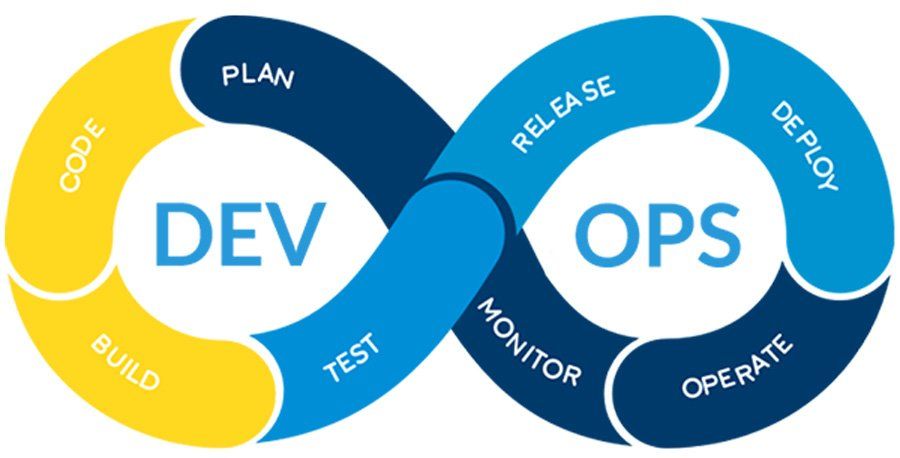Today, when you ask businesses about streamlining their development processes, you will hear only one name – “DevOps”. They are gradually implementing these changes to prioritize development and improve team collaborations in the organization. But before they plunge into implementing changes on a big scale, business owners need to exercise the efforts, risks, and costs. However, once implemented, there are countless advantages they will bring into the organizational processes and operations. This article will help you understand the benefits of DevOps. Also, it will cover why is it crucial to implement as a part of your IT processes.
DevOps – Presenting a Cross-Functional Approach
DevOps is a cross-functional approach to develop and improve team collaborations and promise agility in the software process. The model defines a seamless combination of two essential parts of a software development process – development and infrastructure management. Thus, improving every part of the product and performing quick actions to the changing requirements and situations. In a nutshell, it is about delivering an error-free product while sticking to the common goal and being on the same page.
Why is DevOps necessary for your organization?
Two factors play a primary role in successful product development – quality analysis and customer feedback. As a part of the agile methodology, once the production is completed in the first phase/sprint, it is tested and deployed to the higher environments for a safe release. But this consumes manual efforts during long iterations and deployments, which reduces development time.
DevOps steps in, here. The primary role of a DevOps engineer is to make sure the software is running aligned with stakeholders, developers, and infrastructure perspectives. When you adopt a DevOps culture in your organization or team, it increases the overall product’s scalability, efficiency, and sustainability.
Advantages of DevOps
Faster Processes- Faster Delivery Time
DevOps focuses on three primary principles to improve the efficiency and speed of the software development process –
- CICD (continuous integration-continuous deployment),
- Automation, and
- Feedback cycle
It utilizes automation tools and processes to ensure a seamless SDLC operation (Software Development Life Cycle). It promotes a collaborative culture which increases the chances of continuous feedback during each sprint cycle and release. Thus, it increases the scope of fixing glitches or impediments in time for faster releases.
Promotes High Team Collaboration
Today, there is a constant need for communication and collaboration between teams to improve business agility. Each team member should own the responsibility for quality development and deliverables, thus blurring the lines between roles and organization hierarchy. Therefore, development teams need to improve inter-communication in a dynamic way to promote a collaborative environment. DevOps provides an environment to cater to mutual communication, collaboration, and integration across globally-located teams to provide faster and on-time delivery in an IT organization.
Untimely Defect Detection
A collaborative approach and environment nurture a culture that helps promote business agility. The continuous processes of development, testing, and release help to improve the overall code quality. For globally-distributed IT teams, knowledge sharing becomes crucial. It bridges the gap of communication and empowers each member to share their feedback. Thus, it helps with the early detection of defects, faster resolution, and timely deliverables.
Continuous DDR (Development, Deployment, and Release)
Software development practices have evolved. The process demands teams to deliver a quality build and release with reduced timelines. To achieve it, DevOps triggers automation to reduce manual efforts for both Development and Operation teams. CI/CD pipeline and processes allow the teams to develop, build, release, and integrate code in each environment. This approach helps in the early detection of errors through QA, thus improving code quality. Thus, DevOps promotes higher quality, efficiency, and continuous sprint or software releases.
Scope of Bringing Innovative Approach
DevOps streamlines the operations to increase the coding efficiency and ensure faster releases. It ensures that deployment phases are stable and the team continues to add value and quality to the development. Thus, increasing the scope of bringing innovative approaches for resolving errors.
Automation of Processes
The process of development and production of releases requires repetitive tasks and efforts. It demands time and efforts and, most importantly, the quest to learn new tools and technologies for their implementation. But with DevOps, everything becomes easy with the streamlined processes of automation. It creates a workflow of the processes implemented in each SDLC environment, such as development, staging, and release. It is an excellent help for quality analysts to report issues at the early stages. Hence, automation reduces manual efforts and helps to focus on other essential implementations and on-time service delivery.
Optimized Processes
DevOps helps boost the morale of the team by reducing additional efforts and traditional processes. It replaces them with automation, thus saving development efforts and cost. Moreover, it optimizes the processes and operations to help businesses stay ahead of time and lead the competition.
Minimize Risk of Changes
Business cannot afford to avoid new changes. They need to deliver solutions with agility and speed. Development and DevOps should collaborate to run the end-to-end processes seamlessly to reduce the risk of changes. It helps IT organizations to accept changes with high speed and greater security.
Enhanced Effectiveness
Stable environments for development, testing, and production are some of the critical elements of DevOps models. Automations in deployments have been a blessing in disguise, thanks to the DevOps operations and infrastructure. It eradicates the processes of manual deployments, thus saving time and efforts. Hence, the team can focus on productivity and invest their time, adding value to the project, benefitting the organization.
Quick Deployment
Faster deployments!? Are they even possible? Yes, with DevOps, everything is achievable at any time and location. Businesses can now automate their processes to accelerate deployment. They can use new strategies and practices to deploy new features, impediments, hotfixes, and issues more rapidly than before. They can implement new practices as a part of the agile process and lend more time to continue development efforts. Hence, it brings a significant transformation with innovative approaches and add-on benefits such as focused development, time for innovations, faster deployment, and timeline of deliverables. This attribute is remarkable and considered one of the best benefits that add to the business value from a business standpoint.
Business Agility
Adopting DevOps practice in the organization enables businesses to market their ready-to-release product to customers directly. It reduces the response time to failures and increases the time to bring in innovations. But with innovations, predicting changes becomes impossible. But agility helps in doing so with the processes and tools.
Continuous Delivery
DevOps is synonymous with continuous delivery. All the processes right from build, release, and deployments to each development and staging environment are automated. Hence, the software is always in a ready-to-release state. Businesses that adopt this mindset through various technologies can focus on innovative approaches and new technologies. It ensures that the quality product will always be the first in the market and readily available to the customers.
Transform Digitally
Organizations operating in any industry vertical should transform digitally and embrace change to take the lead. Innovations and trends in technology presented the development of new tools and solutions. This approach helps to deliver better digital services with quality products and experiences. DevOps brings opportunities to deliver better quality software with accuracy, speed, and quality. It creates a foundation of digital transformation too.
Increased Scope of Visibility
The demands initiate at the development level to pursue faster delivery. Real-time analytics and insights of the application play an important role in accelerating the process. One can track issues through centralized logs for every environment. This factor enables both development and DevOps teams to derive valuable business insights and increase the scope of visibility to run software applications.
Empower customer experiences
The biggest hidden benefit of implementing this practice is customer experiences. As per reports, nearly 70% of digital businesses have achieved customer liability and satisfaction by participating in it. It helps organizations lower failure risks by 4x, improves the success rate by 300x. It also ensures the stability of the environments and releases of the application after every release. It helps in early fault detection and provides solutions to resolve complex issues at every stage. When the software runs successfully in each environment and at the customer’s end, it benefits organizations significantly. It leads to customer satisfaction and earns your business a good market position. It means that the successful implementation of DevOps practices can help you enhance your customer service.
Better Quality
Every team member of an organization shares the same roles. The roles involve delivering performance, better customer experience, and on-time delivery. DevOps makes sure everyone is liable for a successful build and release of the application. Thus, individual and team participation will help track every change that impacts quality.
Better Business Performance
DevOps with cloud-based integrations has the potential to drive business values and increase revenue. It helps in performance and speed in terms of processes and streamlining operations. It reduces development costs and efforts by bringing continuous innovation in the business strategy and organization. It helps in better team collaboration and automation to drive a result-oriented approach.
Conclusion
These listed benefits and other such countless additions prove why implementing DevOps is such a wise practice in any organization. So, stop manual processes and go the DevOps way to unfold a digital transition.







